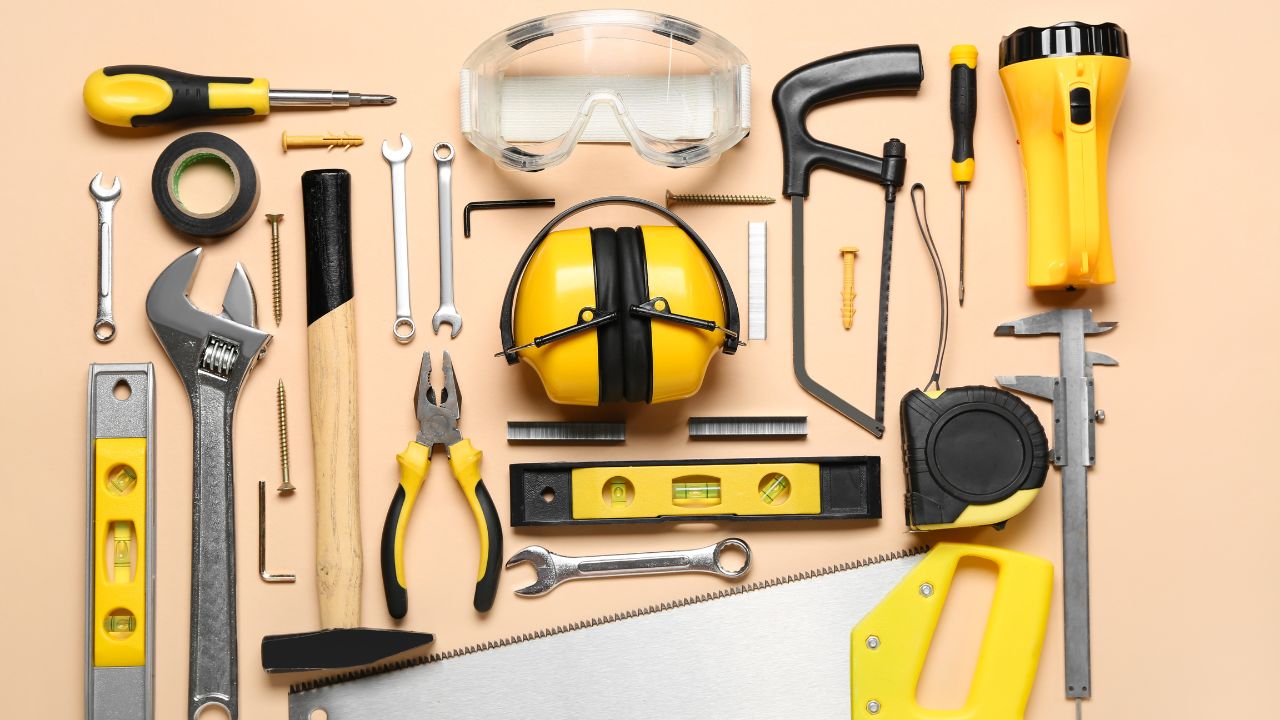As a tradie, your tools are more than just objects; they are the lifeline of your trade. They’re an investment that you’ve made to be more efficient and competitive in your field. But what happens when these tools are damaged, stolen, or misplaced? It can throw your whole schedule off course, resulting in financial losses and potentially jeopardising your reputation. This is where tradie tool insurance comes into play. It provides a safety net for your livelihood, ensuring that you’re not left high and dry should the unexpected occur.
 What is Tradie Tool Insurance?
What is Tradie Tool Insurance?
Tradie tool insurance (also known as tool insurance/ insurance for tools of trade) is a specific type of insurance policy designed for tradespeople. It covers the cost of replacing or repairing your tools if they are stolen, damaged, or lost. This type of insurance is a subcategory of business insurance that focuses exclusively on the equipment you need for your job.
Coverage Scope
Generally, tradie tool insurance policies cover:
- Theft from a secure location
- Damage due to accidents, fire, or other catastrophes
- Loss due to natural disasters
Why You Need Tool Insurance
Protect Your Investment
Tools are expensive, and replacing them out-of-pocket can be a massive financial burden. Tool insurance helps you safeguard your investment, making sure you’re covered should the worst happen. Additionally, because tools often have a high resale value, they can be attractive targets for theft. Investing in tool insurance means you’re protecting against the economic setbacks that can occur if you fall victim to theft. Plus, if you’ve purchased highly specialised tools tailored for your trade, the cost to replace them can be exorbitant, making insurance a wise financial decision.
Maintain Your Work Schedule
Time is money, especially when you are self-employed or running a small business. Insurance for tradies ensures that you can quickly replace or repair tools, thereby keeping your work schedule intact. Without insurance, the time it takes to secure the funds for new tools could significantly delay your projects, leading to missed deadlines. In a competitive marketplace, any delays can provide an opportunity for competitors to step in and take your clients.
Peace of Mind
Knowing that your tools are insured brings a level of comfort and security. You can focus on the quality of your work instead of worrying about potential risks to your livelihood. The mental energy spent worrying about the safety and integrity of your tools can take a toll on your performance and focus on the job. Having the peace of mind that comes with insurance allows you to give your best to each project, which can, in turn, lead to better customer satisfaction and more business. Also, this assurance can make it easier to invest in higher-quality tools, knowing that you have a safety net in place should anything go wrong.
 The Risks Without Insurance for Tools of Trade
The Risks Without Insurance for Tools of Trade
Financial Loss
Tools are not cheap. Losing them and having to replace them yourself can put a significant dent in your wallet.
Reputation Damage
Delays in work due to missing or damaged tools can hurt your reputation, costing you future business.
Stress and Anxiety
The emotional toll of losing the tools you rely on for your livelihood should not be underestimated.
Types of Insurance for Tradies
Aside from tradie tool insurance, there are other types of insurance that tradespeople may need:
- Public Liability Insurance – protects you against financial losses if you’re found liable for causing property damage or injury to a third party.
- Income Protection Insurance – provides a replacement income if you’re unable to work due to illness or injury. It helps you maintain your standard of living and meet financial obligations when you can’t earn an income.
- Commercial Vehicle Insurance – covers the loss or damage to the vehicles you use in your trade. This is crucial because any damage to your vehicle can not only be costly to repair but also impede your ability to work.
Each of these policies offers different types of protection that can be vital depending on your line of work.
 How to Choose the Right Trade Tool Insurance Policy
How to Choose the Right Trade Tool Insurance Policy
Assess Your Needs
The first step in choosing the right policy is to assess what you actually need. Take an inventory of your tools and consider their total value.
Compare Policies
Different insurance providers offer varying levels of coverage. It’s essential to compare policies to find the one that best suits your needs.
Consider Add-Ons
Some policies offer additional coverage options like accidental damage or coverage for tools left in an unattended vehicle.
For a deeper dive into how you can better look after your tools, read the article here.
Read the Fine Print
Always read the policy terms and conditions carefully to make sure you’re fully aware of what is and isn’t covered.
FAQs About Tradie Tool Insurance
- Is tradie tool insurance tax-deductible? Yes, the premiums are generally tax-deductible as they are considered a business expense.
- What is the average cost of a tradie tool insurance policy? The cost varies depending on factors like the total value of your tools, the level of coverage, and the insurer.
- Can I insure rented or leased tools? Whether you can insure rented or leased tools depends on the insurance company and the rules of the insurance plan you pick. Some policies do offer coverage for rented or leased equipment.
 Tradie tool insurance is not just an optional extra; it’s an essential part of safeguarding your livelihood. As someone who relies on tools for a living, the last thing you want is to find yourself without the equipment you need to do your job.
Tradie tool insurance is not just an optional extra; it’s an essential part of safeguarding your livelihood. As someone who relies on tools for a living, the last thing you want is to find yourself without the equipment you need to do your job.
That’s why it’s crucial to take the time to find the right trade tool insurance policy that offers adequate protection. If you’re unsure about which policy is right for you, contact Tradies 365 today and let our experts help you piece together your insurance needs for your line of work.
Note: The material offered here is for informational purposes only. It does not constitute legally binding advice and should not be a substitute for a consultation with an insurance expert.

 The Risks Without Insurance for Tools of Trade
The Risks Without Insurance for Tools of Trade How to Choose the Right Trade Tool Insurance Policy
How to Choose the Right Trade Tool Insurance Policy